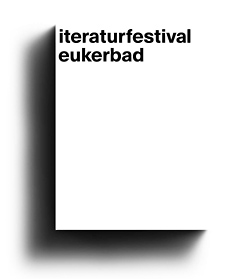30th Leukerbad International Literary Festival
Collaborations
Every year, around a dozen domestic and foreign institutions contribute to a rich, high-caliber program at Leukerbad Literary Festival though joint projects, collaborations and contact. In 2015, the Odessa Literary Festival was first staged—a co-production by the Leukerbad International Literary Festival and the International Literature Festival Berlin.
Our Network
LCB Literarisches Colloquium Berlin
Künstlerprogramm des DAAD Berlin
CTL Centre de traduction littéraire de Lausanne
Schulhausroman / Roman d’école
Internationales Literaturfestival Berlin
Internationales Literaturfestival Odessa
30th Leukerbad International Literary Festival:
